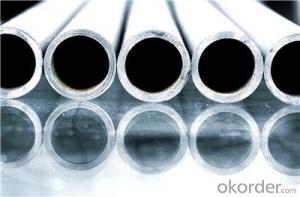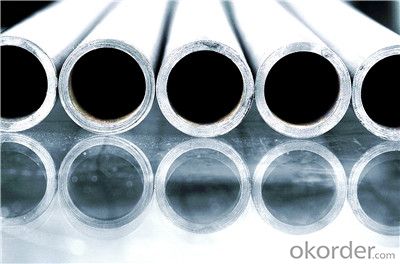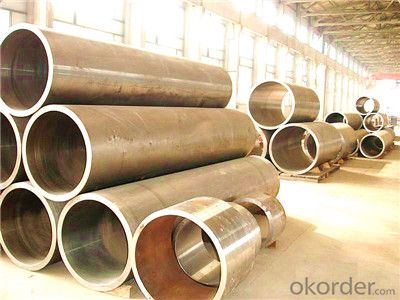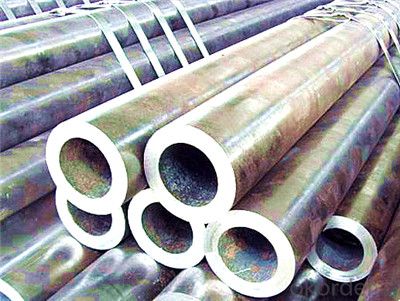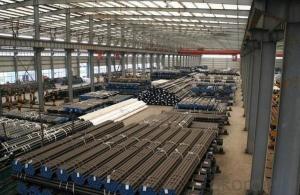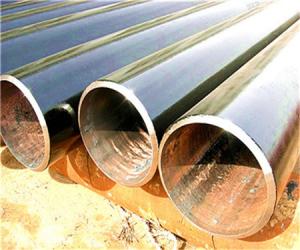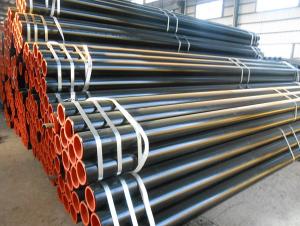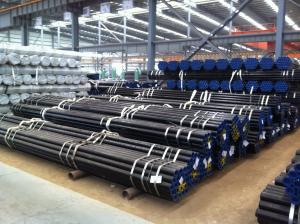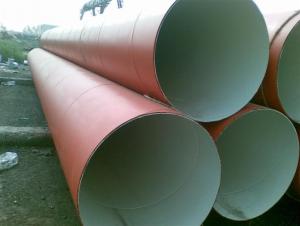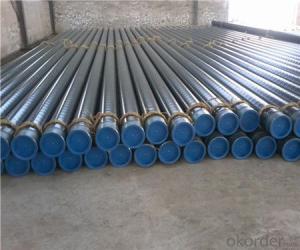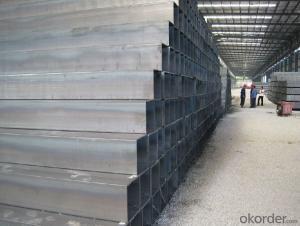Seamless Steel Pipe with high quality and reasonable price
- Loading Port:
- Tianjin
- Payment Terms:
- TT OR LC
- Min Order Qty:
- 50 m.t.
- Supply Capability:
- 2000000 m.t./month
OKorder Service Pledge
OKorder Financial Service
You Might Also Like
PRODUCT DETAILS
1.Structure of Seamless Steel Pipe Description:
A large amount of Seamless Steel Pipes is offered to the clients at cost effective rates. These pipes are extremely durable, resistant to corrosion and have high tensile strength. Our pipes are used in nuclear plants, power plants, refineries and construction industry across the country. Furthermore, we are capable of providing these seamless pipes to the clients in bulk quantity.
2.Main Features of the Steel Pipe:
• High manufacturing accuracy
• High strength
• Small inertia resistance
• Strong heat dissipation ability
• Good visual effect
•Reasonable price
3.Packaging & Delivery:
| Packaging Details: | Seaworthy packages, bundles wrapped with strong steel strip |
| Delivery Detail: | 15-30 days after received 30% TT |
4.Seamless Steel Pipe Specification:
| Standard: | GB, DIN, ASTM,ASME, ASTM A106-2006, ASTM A53-2007 |
| Grade: | 10#,20#, 45#, 16Mn |
Thickness: | 8 - 33 mm |
| Section Shape: | Round |
| Outer Diameter: | 133 - 219 mm |
| Place of Origin: | Shandong, China (Mainland) |
| Secondary Or Not: | Non-secondary |
| Application: | Hydraulic Pipe |
| Technique: | Cold Drawn |
| Certification: | API |
| Surface Treatment: | factory state or painted black |
| Special Pipe: | API Pipe |
| Alloy Or Not: | Non-alloy |
| Length: | 5-12M |
| Outer Diameter: | 21.3-610mm |
5.Product pictures
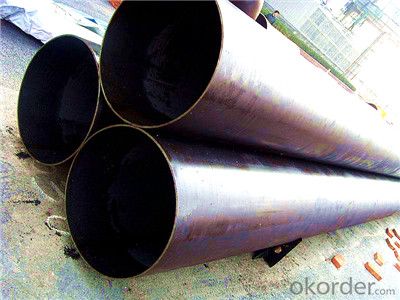
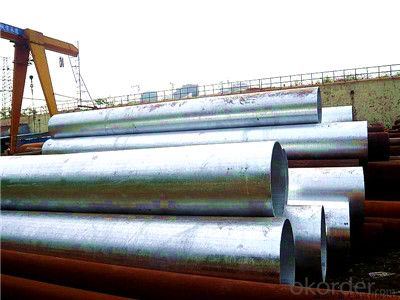
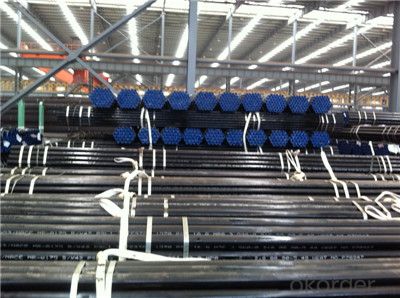
5.FAQ of Seamless steel pipe:
①How is the quality of your products?
Our products are manufactured strictly according to national and internaional standard, and we take a test
on every pipe before delivered out. If you want see our quality certifications and all kinds of testing report, please just ask us for it.
Guaranteed: If products’ quality don’t accord to discription as we give or the promise before you place order, we promise 100% refund.
②How about price?
Yes, we are factory and be able to give you lowest price below market one, and we have a policy that “ for saving time and absolutely honest business attitude, we quote as lowest as possible for any customer, and discount can be given according to quantity”,if you like bargain and factory price is not low enough as you think, just don’t waste your time.Please trust the quotation we would give you, it is professional one.
③Why should you chose us?
Chose happens because of quality, then price, We can give you both.Additionally, we can also offer professional products inquiry, products knowledge train(for agents), smooth goods delivery, exellent customer solution proposals.Our service formula: good quality+good price+good service=customer’s trust.
SGS test is available, customer inspection before shipping is welcome, third party inspection is no problem.
Any question, pls feel free to contact us !
- Q: How are steel pipes used in the agricultural sector?
- Steel pipes are commonly used in the agricultural sector for various purposes such as irrigation, drainage, and livestock handling. They are used to transport water from a source to fields, as well as to distribute water evenly across crops through irrigation systems. Steel pipes also help in draining excess water from fields and preventing waterlogging. Additionally, they are utilized for constructing fences, gates, and cattle handling facilities, ensuring the safety and containment of livestock.
- Q: How much is 4 inches steel tube MM?
- The standard wall thickness is 4mm, so the outer diameter is 114mm.
- Q: What are the different types of steel pipe coatings for nuclear power plants?
- There are several types of steel pipe coatings used in nuclear power plants, including epoxy coatings, fusion-bonded epoxy (FBE) coatings, and polyethylene (PE) coatings. These coatings provide corrosion and chemical resistance to the steel pipes, ensuring their longevity and safety in the demanding environment of a nuclear power plant.
- Q: How are steel pipes connected together?
- Steel pipes are typically connected together through various methods such as welding, threading, and flanging. Welding involves fusing the ends of pipes together using high heat, creating a strong and permanent connection. Threading involves screwing the ends of pipes together using threads, while flanging involves connecting pipes by flaring or bending their ends and securing them with bolts. These methods ensure a secure and reliable connection between steel pipes.
- Q: What does "spiral welded steel pipe" DN325*10 mean?
- Labeling is wrong: it should be said for 325*10, the diameter of pipe wall thickness of 10, 325;For example, the nominal diameter shall be: DN300.
- Q: Can steel pipes be used for underground cable protection?
- Yes, steel pipes can be used for underground cable protection. Steel pipes offer durability, strength, and corrosion resistance, making them suitable for protecting cables from external factors such as moisture, chemicals, and physical damage. Additionally, steel pipes can be coated or galvanized to provide further protection against rust and corrosion.
- Q: What is the difference between steel pipes and copper pipes?
- Steel pipes and copper pipes differ in their material composition, durability, cost, and application. Steel pipes are made of an alloy of iron and carbon, providing them with high strength and resistance to corrosion. Copper pipes, on the other hand, are made solely of copper, which offers excellent heat conductivity and resistance to bacterial growth. While steel pipes are more durable and suitable for high-pressure applications, copper pipes are commonly used for plumbing systems due to their malleability, ease of installation, and ability to withstand extreme temperatures. Additionally, copper pipes tend to be more expensive than steel pipes.
- Q: Difference and application of seamless hot rolled pipe and cold drawn pipe in seamless steel tube
- The general production of hot-rolled seamless steel pipe in the automatic tube rolling mill. Solid billet after inspection and clearance of surface defects, cut into required length, in the tube hole end surface of centering, then sent to a heating furnace, in punch in punch. While continuing to rotate and advance, in the roll and immediate action, tube gradually form a cavity, called capillary. Sent to the automatic tube rolling mill on rolling. Finally after all the entire thickness, sizing machine sizing, achieve specifications. Using continuous pipe mill production of hot-rolled seamless steel tube is advanced.1.2, in order to obtain smaller size and better quality of seamless tube, cold rolling, cold drawing must be used or combined method of cold rolling. Usually in two roller mill, rolling ring groove tapered plug pipe in variable cross section circular slot and the composition. Drawing is usually in single or double 0.100T chain drawbench.1.3, the extrusion method will soon heat the tube blank in the closed extrusion cylinder, the perforation bar and extrusion rod movement, so that extrusion parts from the smaller die hole extrusion. This method can produce smaller diameter steel pipe
- Q: How are steel pipes used in the construction of wind farms?
- Steel pipes are used in the construction of wind farms for various purposes, such as supporting wind turbine towers, providing a strong foundation for the turbines, and transmitting electricity generated by the turbines to the power grid.
- Q: What are the environmental impacts of steel pipe manufacturing?
- The environmental impacts of steel pipe manufacturing include the extraction of raw materials such as iron ore and coal, leading to habitat destruction and increased carbon emissions. The manufacturing process itself involves high energy consumption and releases greenhouse gases, contributing to climate change. Additionally, the disposal of waste materials and chemicals used during production can contaminate soil and water sources if not handled properly. Overall, steel pipe manufacturing has significant environmental implications that need to be addressed through sustainable practices and technologies.
Send your message to us
Seamless Steel Pipe with high quality and reasonable price
- Loading Port:
- Tianjin
- Payment Terms:
- TT OR LC
- Min Order Qty:
- 50 m.t.
- Supply Capability:
- 2000000 m.t./month
OKorder Service Pledge
OKorder Financial Service
Similar products
Hot products
Hot Searches
Related keywords
